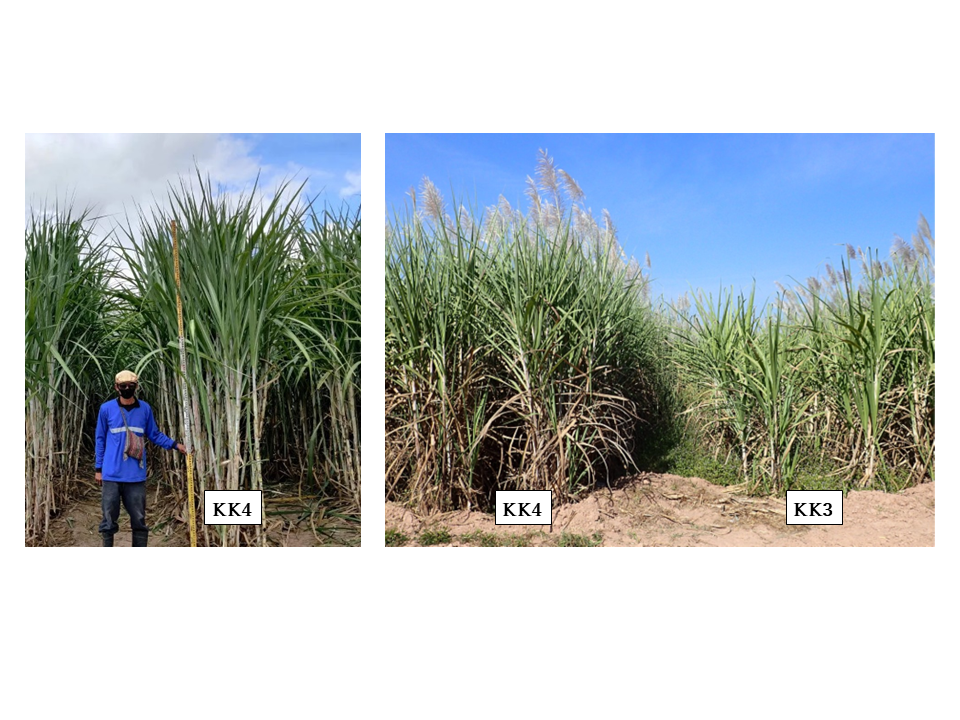Pick Up
884. Adoption of Sugarcane Variety KK4 for Cultivation in Thailand and Expectations for Increased Bioenergy Production from Bagasse

884. Adoption of Sugarcane Variety KK4 for Cultivation in Thailand and Expectations for Increased Bioenergy Production from Bagasse
The sugarcane variety TPJ04-768, characterized by high bagasse productivity, is the result of a collaboration between JIRCAS and the Khon Kaen Field Crops Research Center of the Department of Agriculture in Thailand. This innovative sugarcane variety has been officially named "DOA Khon Kaen 4 (KK4)" and approved by the Thai government, marking a significant milestone in the Thai sugarcane industry. This is the first time that the results of joint research with Japan have been adopted by the Thai sugarcane sector (JIRCAS Press release: https://www.jircas.go.jp/en/release/2023/press202315).
KK4 is derived from interspecific hybridization between sugarcane variety used for sugar production and wild sugarcane that grows naturally in Thailand and has excellent productivity in ratoon crops. Compared to the currently dominant sugarcane variety KK3, KK4 produces approximately 1.5 times more bagasse due to its higher fiber content, while maintaining a similar sugar yield.
The introduction of KK4 promises to improve productivity in areas with historically low yields in ratoon crops, facilitating the expansion of bioenergy production without competing with food production. This will be achieved by producing more bagasse while maintaining sugar production levels. With the endorsement of KK4 as the recommended variety in Thailand, the Thai Department of Agriculture has established a system for the annual production of seed canes for planting. These will be made available to farmers and sugar mills wishing to grow this breakthrough variety, thereby promoting its widespread adoption.
References
・JIRCAS Press Release : https://www.jircas.go.jp/en/release/2023/press202315
・JIRCAS Research Highlights:https://www.jircas.go.jp/en/publication/research_results/2015_b10
Contributor: TERAJIMA Yoshifumi (TARF)
